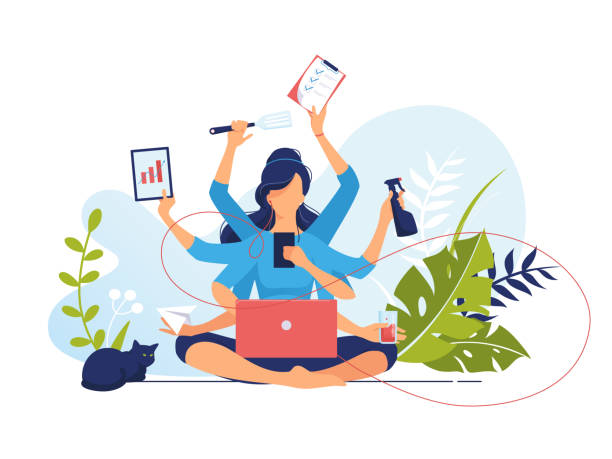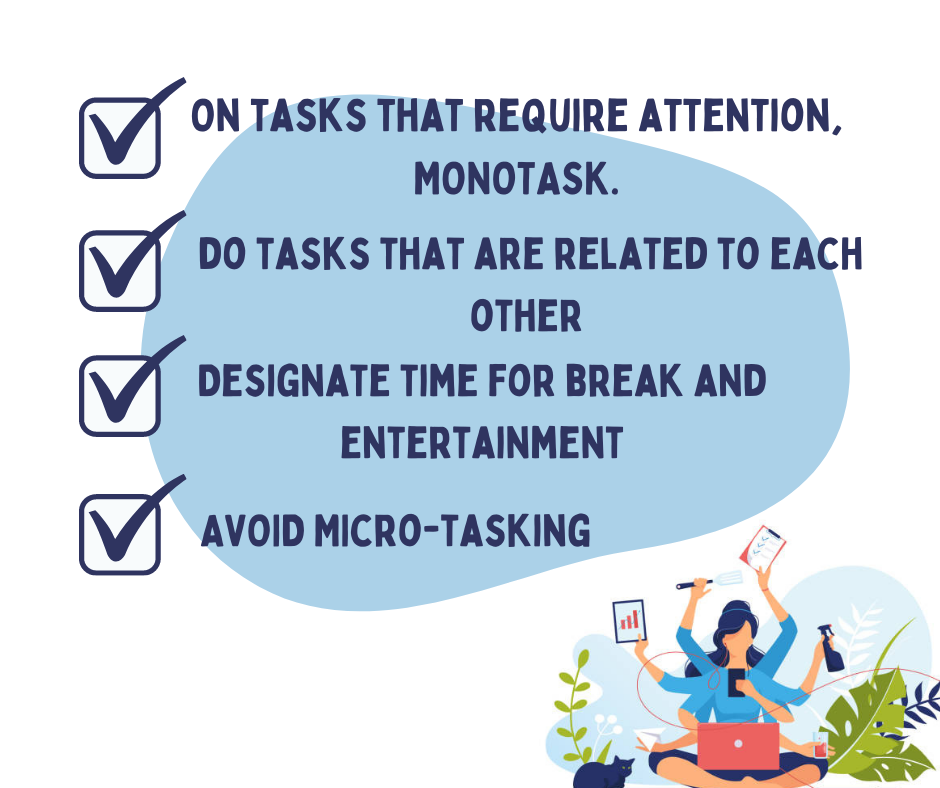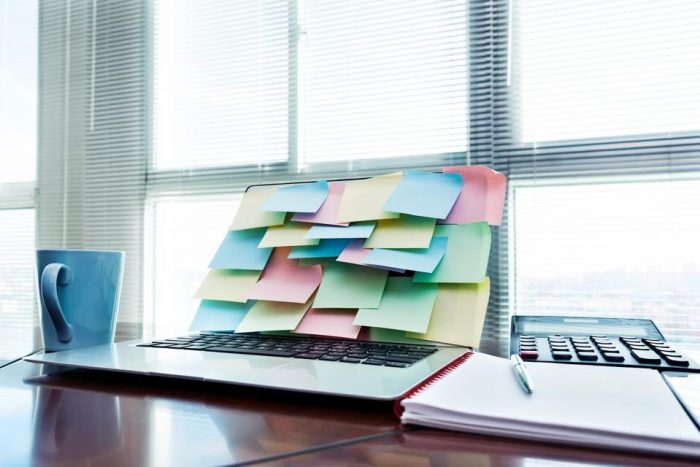Multitasking is something we Filipinos are so fond of. Watching TV while eating, listening to music while doing house chores, and even chatting while working. But the kind of multitasking that is arising today, not only among students but also among working adults, is a bit over the top and it is caused by the idea that everything can be done online, and that no one is watching.
Well, that would be too much for hitting two birds with one stone.
In most cases, you have been multitasking yourself and think you are doing it with ease. But the real score is that most of us cannot multitask effectively, especially when you are participating in remote work or class. At the end of the day, we always feel too tired of how many tasks we did but looking at outcomes only very few are done.

Some of the tasks that you think you can juggle often end up as distraction. Attending emails, messages, and minor tasks during a regular online class or self-study period may be more akin to microtasking – the act of rapidly moving from one task to another back and forth rather than multitasking which is to do and complete two tasks at once.
When you microtask, it disallows your brain to get familiar and remember what needs to be accomplished. Think of it as restarting everything you have already done every time you go back to a task. Your brain must acclimate again and be ready to do one task all over again. Because of this, you may end up tiring yourself. Switching set-ups often requires more energy, and it causes you to make more mistakes than usual. However, focusing on what is at hand allows you to remember and encode information onto your long-term memory properly. Which means micro tasking may not be beneficial when you are trying to study and imbibe the information delivered at a specific moment.
Does this mean monotasking is key? The answer is yes, and no. Monotasking may allow you to master and remember information, but it may also eat up all your time. Proper time management and categorization of tasks is important especially when you are working or studying alone. During online classes and studying, multitask by listening or reading intently while jotting down important notes – this is a pair of tasks that can go hand in hand. Do not add any non-related task to it. During the start, breaktime, and end of your day, you may check your emails, messages, and other communication lines that will help you put together what you need to accomplish. These small tasks are very much related, and you may use them to easily determine information that needs to be prioritized or acted upon immediately.
The key is to identify tasks that are related and those that require different senses. For example, you can read while listening to music because you use your eyes for reading and your ears for listening. Some people even use audiobooks for maximum information retention. Using audiobooks, you can listen to what you are reading. Watching a movie while reading a book is not advisable because you must use the same senses to accomplish two different tasks.
Pro tip, focus on your class or study to retain more information.
Does this mean I also have to put time into entertainment? The answer is yes. Rewarding yourself with entertainment for a job well done is also part of your working psyche but never mix it with tasks that require your full attention. Full-focus tasks require heavier cognitive load which entertainment may not require. Entertainment also offers a rush of dopamine (happy hormones) which will make you feel happy. Because of this, you often feel torn between responsibility and happiness when you mix both tasks. For most cases, this feeling will draw you more to entertainment than the actual task at hand. Thus, it is advisable to designate time for ice breakers after every task that requires high cognitive load.
You may check on Pomodoro Technique if you want to make the most of your study time. It allows you to have 25 minutes of full focus activity and a few minutes of break or entertainment activity to replenish your energy.

Here are some applications you might want to fully make use of:
- Google calendar.
- Google Tasks
- Forest
- Spotify (look for Pomodoro Playlists)
To sum it up:
- On tasks that require attention and retention, focus and if you can, monotask.
- If there is a need to multitask – do tasks that are naturally related to each other.
- Designate time for break and entertainment.
- Be fully aware of where your attention is going to avoid micro tasking.
Do not hit birds though. Just hit your task, one at a time.
Resources you might want to read:
Adler, R. F., & Benbunan-Fich, R. (2012). Juggling on a high wire: Multitasking effects on performance. International Journal of Human-Computer Studies, 70(2), 156-168. At https://citeseerx.ist.psu.edu/viewdoc/download?doi=10.1.1.653.2500&rep=rep1&type=pdf
Bowman, L. L., Levine, L. E., Waite, B. M., & Gendron, M. (2010). Can students really multitask? An experimental study of instant messaging while reading. Computers & Education, 54(4), 927-931. At https://www.sciencedirect.com/science/article/pii/S0360131509002656
Adapted from the Cornell University Learning Strategies Center and the University of Michigan.

